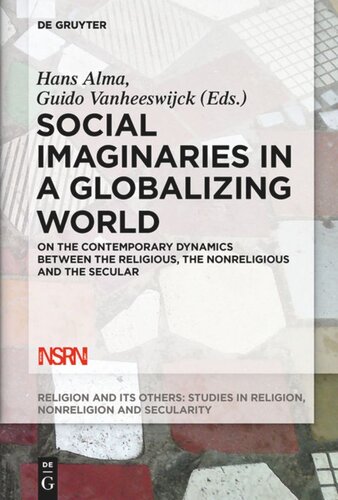

Most ebook files are in PDF format, so you can easily read them using various software such as Foxit Reader or directly on the Google Chrome browser.
Some ebook files are released by publishers in other formats such as .awz, .mobi, .epub, .fb2, etc. You may need to install specific software to read these formats on mobile/PC, such as Calibre.
Please read the tutorial at this link: https://ebookbell.com/faq
We offer FREE conversion to the popular formats you request; however, this may take some time. Therefore, right after payment, please email us, and we will try to provide the service as quickly as possible.
For some exceptional file formats or broken links (if any), please refrain from opening any disputes. Instead, email us first, and we will try to assist within a maximum of 6 hours.
EbookBell Team

0.0
0 reviewsHow to study the contemporary dynamics between the religious, the nonreligious and the secular in a globalizing world? Obviously, their relationship is not an empirical datum, liable to the procedures of verification or of logical deduction. We are in need of alternative conceptual and methodological tools. This volume argues that the concept of ‘social imaginary’ as it is used by Charles Taylor, is of utmost importance as a methodological tool to understand these dynamics. The first section is dedicated to the conceptual clarification of Taylor's notion of social imaginaries both through a historical study of their genealogy and through conceptual analysis. In the second section, we clarify the relation of ‘social imaginaries’ to the concept of (religious) worldviewing, understood as a process of truth seeking. Furthermore, we discuss the practical usefulness of the concept of social imaginaries for cultural scientists, by focusing on the concept of human rights as a secular social imaginary. In the third and final section, we relate Taylor's view on the role of social imaginaries and the new paths it opens up for religious studies to other analyses of the secular-religious divide, as they nowadays mainly come to the fore in the debates on what is coined as the ‘post-secular.’